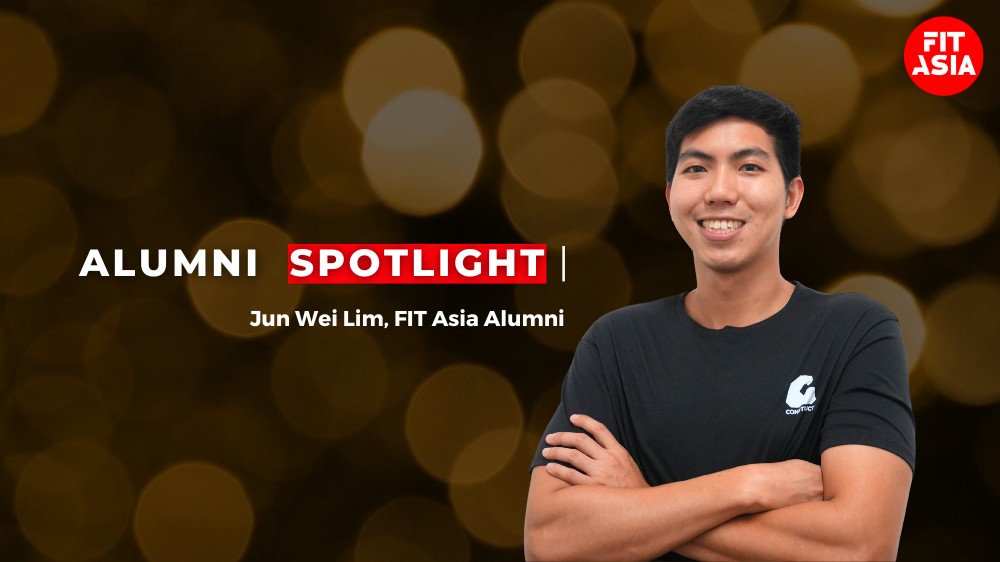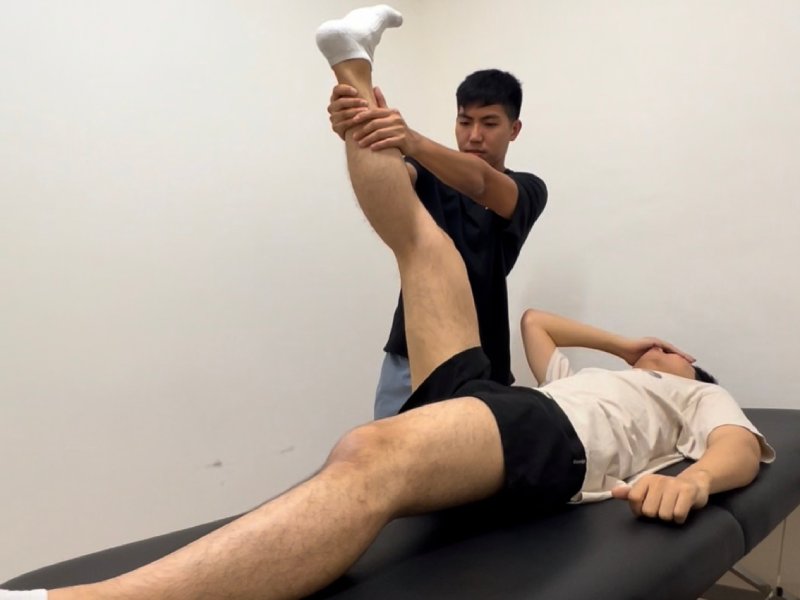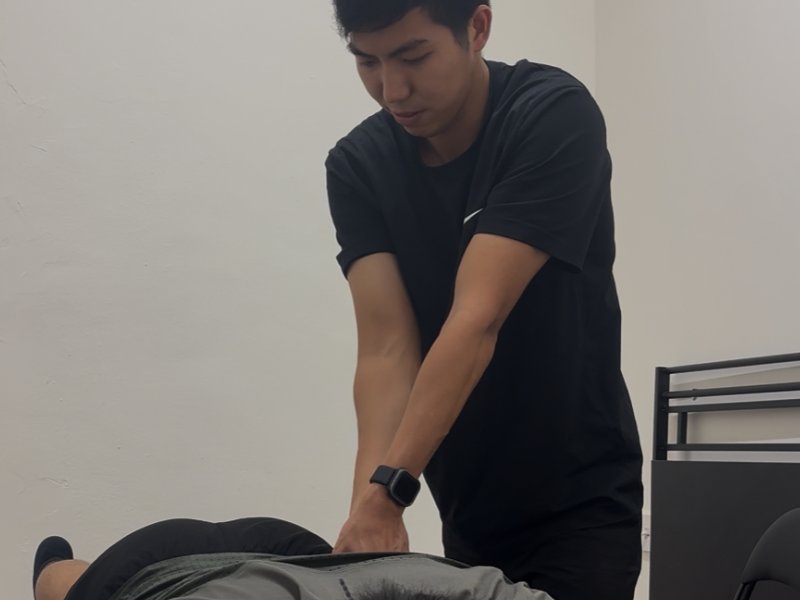
Hi, I’m Jun Wei—a Movement and Performance Coach. I am a ACE Certified Personal Trainer and Sports Massage Therapist. My approach is rooted in helping people move with purpose, build resilience, and feel strong and capable in their bodies.
I started my professional journey as a Physical Education teacher under Singapore’s Ministry of Education, where I taught sports and movement to secondary school students. Those years gave me a strong foundation in teaching and working with youth, and they continue to shape how I communicate and connect with people through movement today.
Over time, I felt the pull to deepen my practice and continue building on my knowledge in fitness. That led me to pursue various certifications including Animal Flow Level 1, Sports Massage Therapy, Assisted Stretching, and Rehab U Movement Optimisation. These specialisations have allowed me to take a more holistic approach—bridging mobility, performance, and recovery to support clients across different goals and needs.
Today, I’m the co-founder of CONSTRUCT—a co-working gym space built to empower freelance personal trainers and wellness professionals to grow their businesses. Beyond just being a training facility, CONSTRUCT is designed as a supportive ecosystem for fitness professionals—a place that brings together training, recovery, nutrition, education, and community under one roof.
At CONSTRUCT, I coach clients for one-on-one training, provide manual therapy to aid clients in recovery and also manage the day-to-day operations of the space.
What made you pursue the career path you are now on? What was the main catalyst?
It really began with trying to address my own challenges—like improving my mobility and building strength—after many years of being involved in sports and street dance. That journey made me more aware of how the body moves, and the limitations I needed to overcome. It sparked a deeper interest in understanding how to train properly and take care of my body. That led me to pursue my Personal Trainer certification with FITASIA, and from there, my passion for fitness just kept growing. I found myself wanting to dive deeper into all aspects of movement, performance, and recovery—not just for myself, but so I could help others do the same.
Do you recommend getting a fitness qualification/certification over gaining actual experience first, and why?
I believe both are equally important, and ideally, they should go hand in hand. Attending a course and getting a certification provides structured learning and helps you build a strong foundation in areas like anatomy, movement mechanics, and program design. This theoretical base is crucial for coaching safely and effectively.
At the same time, practical experience is what teaches you how to truly coach—how to communicate, adapt, and work with different individuals in real-life situations. Just because someone is knowledgeable or a great lifter doesn’t automatically make them a good teacher, and vice versa. You need both the theory and the hands-on application. Courses and certifications help you understand the “why,” while experience shows you how to apply that knowledge meaningfully. Together, they shape you into a capable and confident coach.


How did recent advances in tech & innovation helped you elevate your career, what are some examples? Is it always positive?
The advancement of technology has definitely made coaching more efficient. Tools like nutrition tracker apps and fitness programming platforms have streamlined my workflow, allowing me to save time and focus more on my own training and development. At the same time, these tools provide added value to clients by offering structure, progress tracking, and accountability—even outside of our sessions.
That said, while technology is a great support, it doesn’t replace real coaching. The ability to observe, connect, and adapt to each individual is still at the heart of what we do. Tech should enhance the experience—not replace the human element.
How do you define success, and what are some of the challenges you had to overcome?
Success doesn’t always have to be something big or tangible. It can be found in the small, consistent steps—being just a little better than you were yesterday. Progress isn’t always linear, and there will be times when you feel stuck or experience a dip in performance. But learning to stay patient, trust the process, and keep showing up is what makes those moments of growth meaningful.
One of the biggest challenges I’ve faced was leaving a stable, full-time job in education to pursue a career in the fitness industry. Stepping away from a secure income and structured environment came with a lot of uncertainty and self-doubt. It was a leap into the unknown, but I knew I wanted to create something more aligned with my passion and values. That decision pushed me to grow—not just as a coach, but as an individual learning how to build a business, manage risks, and stay true to my purpose. It hasn’t always been easy, but it’s been incredibly rewarding.
What is your mission, and what are your values and aspirations?
I believe fitness is a lifestyle—one that should be sustainable, enjoyable, and empowering. My mission is to help individuals build long-term habits that support both physical and mental well-being.
I value education, consistency, and the understanding that all forms of movement—whether it’s strength training, dance, sports, or mobility—are interconnected and beneficial. Fitness isn’t one-size-fits-all, and I aim to help people find the form of movement that suits them best.
Most importantly, I believe in teaching people how to teach themselves. My goal is to equip clients with the knowledge and confidence to eventually become independent in their fitness journey—so they’re not just following instructions, but truly understanding their own bodies and how to care for them.
What do you enjoy most about your career?
I love building a community of like-minded individuals while helping them grow—whether in their business, personal goals, or overall well-being. Through personal training and sports massage therapy, I get to work closely with people to overcome challenges and make real progress. I’m also grateful for the opportunity to constantly learn from others, especially those with more experience. What drives me is the chance to share knowledge, offer guidance, and be part of someone’s journey toward meaningful, lasting change.


What do you do on your spare time? How do you invest your time?
In my spare time, I’m always looking for ways to expand my knowledge—whether it’s through watching educational content, reading, or enrolling in new courses. I believe learning never really stops, especially in this industry where things are constantly evolving. I also make it a point to stay consistent with my own strength training and enjoy exploring different forms of movement. It keeps me grounded, curious, and helps me better relate to the people I coach.
Why did you get into the fitness industry?
I’ve always had a passion for sports from a young age and have played many different forms of sports throughout my life. When I entered university, I dove deep into street dance, which added another dimension to how I understood movement and body control. My experiences in both sports and dance sparked a strong interest in improving my mobility, strength, and overall performance.
This drive to train smarter and take better care of my body led me to pursue a personal training certification. As I learned more, my passion for fitness grew even stronger. It all came together naturally, and I found myself wanting to help others embrace fitness and live healthier lives—leading me to the career I’m in today.
What is your fitness specialty and why?
As a movement and performance coach, my specialty lies in recovery, movement restoration, functional movement, and both injury prevention and post-injury strengthening. I hold certifications in Sports Massage Therapy, Assisted Stretching, Rehab-U Movement & Performance, and Level 1 Animal Flow, which enable me to help clients improve mobility, restore function after injury, and build resilient, functional strength for everyday life.
With experience teaching a variety of sports, I’m also well-equipped to coach clients aiming to enhance their athletic performance. My background as a physical education teacher has sharpened my ability to guide individuals of all ages to move with intention and confidence.
Having personally explored multiple sports and being passionate about street dance, I bring a holistic understanding and appreciation of movement to my coaching. I believe everyone deserves the freedom to move easily and confidently, and my mission is to help people reconnect with their bodies and unlock their full potential.
How relevant are fitness qualifications/certifications today?
As a former educator, I deeply value the importance of education and having a strong foundation of knowledge—especially in a field as dynamic and impactful as fitness. While experience is invaluable, proper qualifications ensure that we’re applying safe, effective, and evidence-based practices.
I also believe in the power of continual learning. The industry is constantly evolving, and staying updated through certifications, workshops, and mentorships allows us to better serve our clients. Upskilling isn’t just about adding titles—it’s about staying curious, open-minded, and committed to delivering real value through informed, purposeful coaching.
What is your preferred style of encouragement towards clients?
I believe communication is key. I always celebrate my clients’ progress—no matter how small—because every step counts. I also use positive, constructive feedback to guide them through mistakes and help them build a strong growth mindset.
What are some of your top tips to pass to current and/or emerging Exercise Professionals?
Surround yourself with like-minded people who inspire you, and always keep an open mind. Stay humble, train consistently, and be willing to learn from others regardless of their background or experience. Communication and connection are just as important as technical skills. Growth takes time, so trust the process and always remember why you started.





